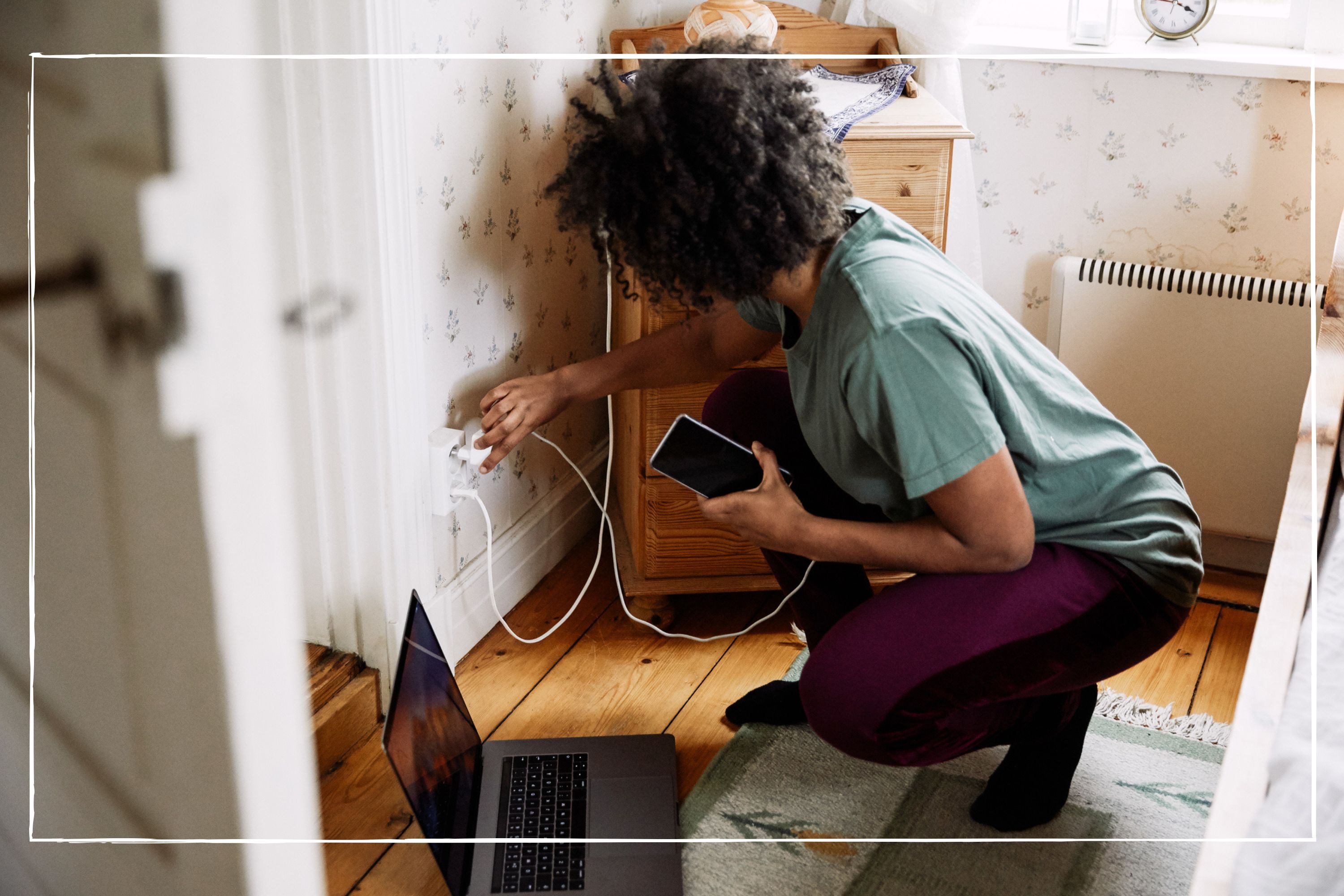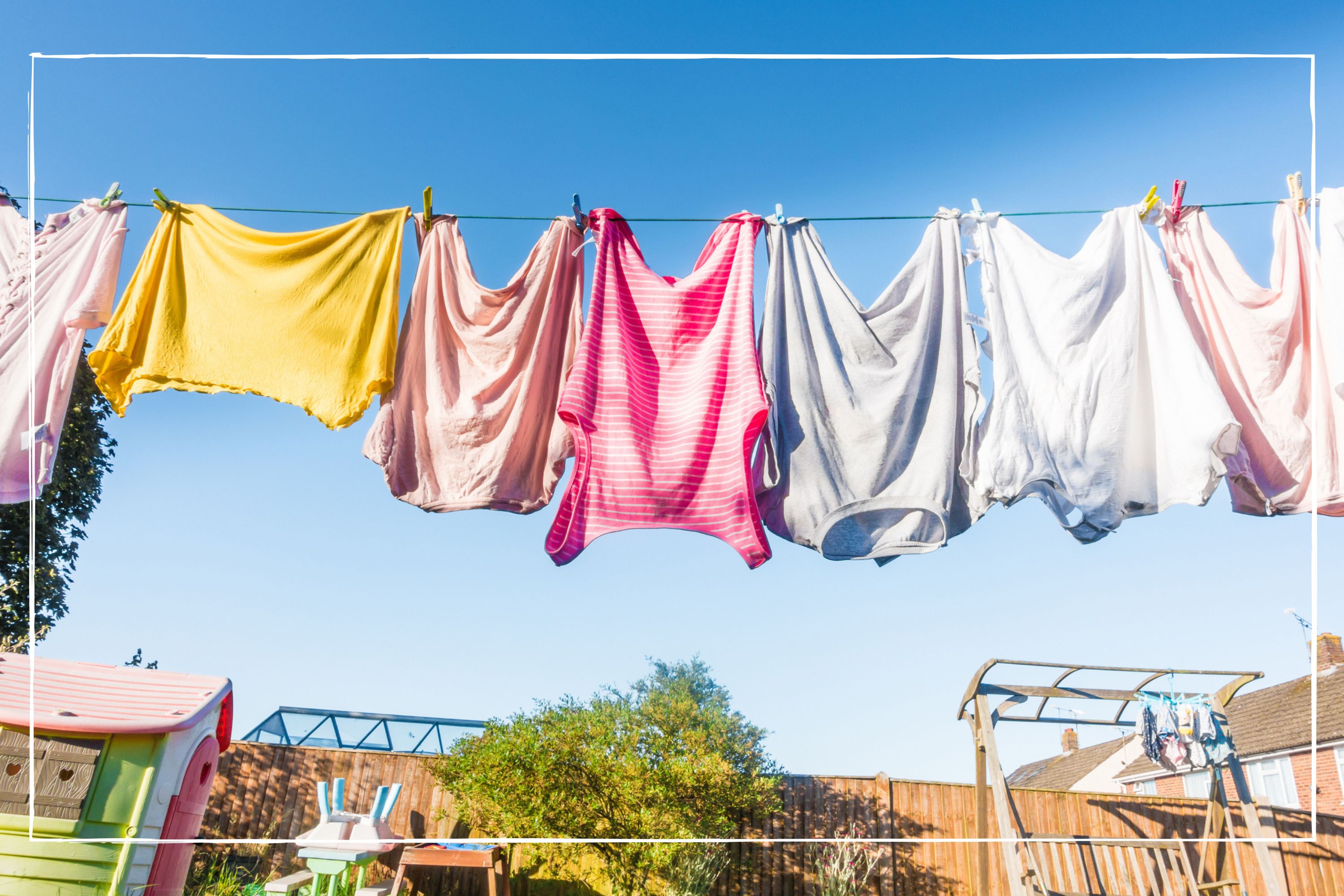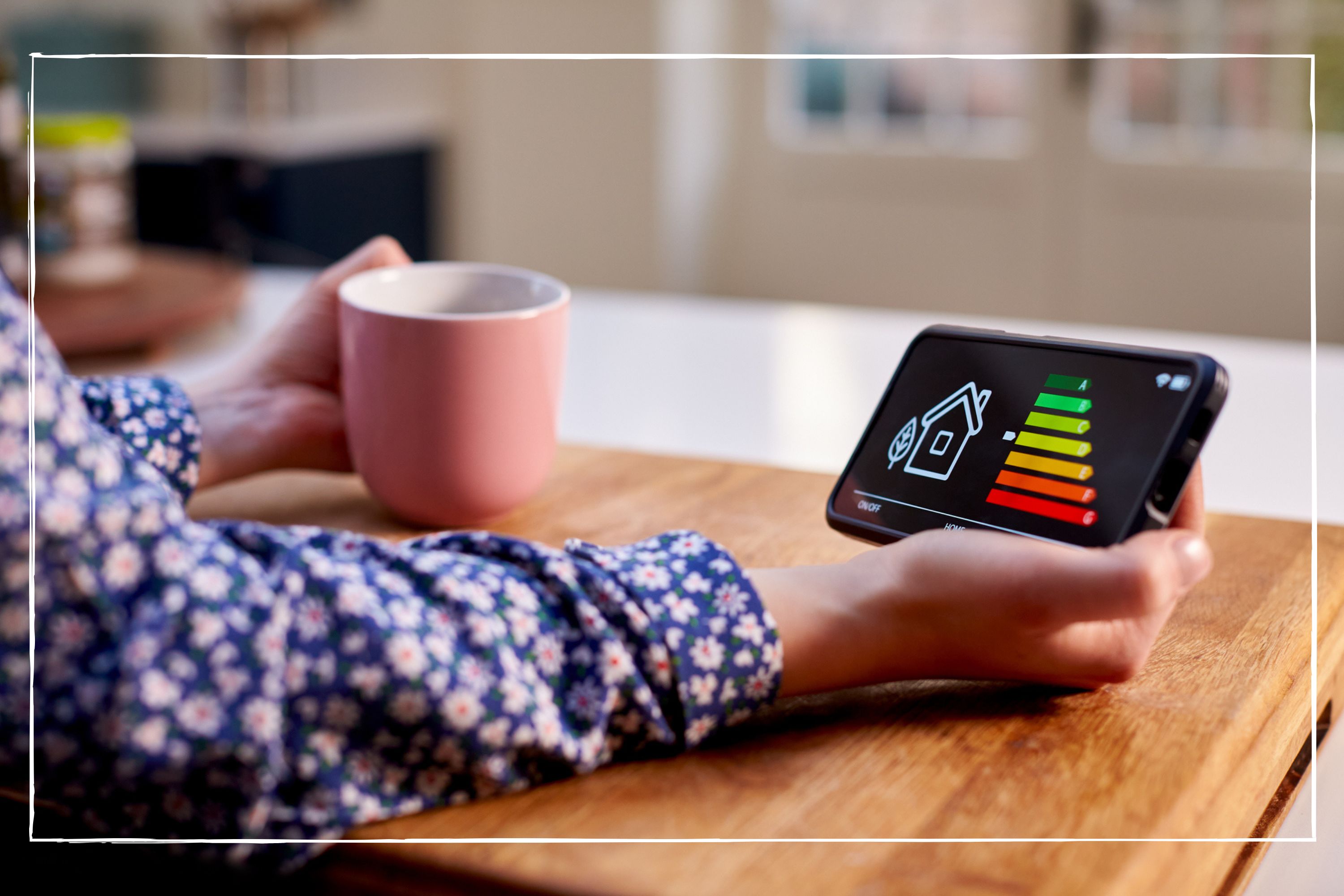How to save energy in homes - 25 family-friendly tips to cut your gas and electric use
Knowing how to save energy in homes is key to families keeping their energy bills under control

Sarah Handley

Understanding how to save energy in homes and keep those bills as low as possible has never been more important. While the energy price cap dropped to £2,074 as of July, we're still paying considerably more for our energy than we were before the energy crisis began.
While switching to a new energy provider is normally a simple way to keep energy bills low, the energy crisis means there are no cheap deals to be found right now. So the best way to keep energy bills as low as you can is to reduce how much energy you use at home. And it helps to really get to grips with reading your bill - we've got loads of tips if you need your energy bills explained.
Peter Smith, director of policy and advocacy at National Energy Action, said: “We have some of the least efficient housing in Europe. This has left the UK more exposed to the current soaring gas price compared to many other countries and we are wasting billions of pounds each year as heat escapes through leaky roofs, floors and ceilings.”
For those worried about how much their energy bills will cost, there are simple changes you can make to use less energy at home and improve your home’s energy rating.
How to save energy in homes
We've listed 25 ways you can reduce how much energy you use in your home. While many won't cost you a penny, some might require you to spend a little in order to save a lot. Even if you don't commit to everything on the list, by just adopting as many as you can will make a difference to your energy bills.
You might also be wondering if you can lower your bills by using cheaper electricity at night, but whether you can save this way will depend on the type of tariff you have. You can see if there is a cheaper tariff available to you by checking a price comparison website, such as our sister site Go.Compare.
1. Replace halogen bulbs with LED lights
You can’t buy halogen bulbs in the UK anymore – they were banned from sale in September 2021. Luckily LED bulbs last much longer and use 80% less power. So if you have any halogen bulbs in your house, now is the time to change them.
Parenting advice, hot topics, best buys and family finance tips delivered straight to your inbox.
Uswitch.com calculates that each 50-watt halogen bulb swapped for an LED alternative will save £3 a year. Multiply that by the number of bulbs in your house and the savings really add up.
2. Buy energy efficient appliances
Appliances such as washing machines, dishwashers and fridges are rated A to G for energy efficiency, with A the most efficient.
According to Which?, the least efficient appliances would add an eye-watering £490 a year to your energy bills, but choosing the most efficient would cut this down to just £154.
If any of your appliances are on their last legs, replacing them with more efficient alternatives will help to provide long-term savings.
You might also want to switch to using a different more energy-efficient appliance - for example if you look at how much it costs to run an air fryer compared to an oven, you might decide to invest in an air fryer and use your oven less.
3. Don't leave electrical items on standby
When your electrical devices are on standby they go into a type of sleep. They’re not actually turned off but are powered down into an energy-saving mode.
However, this still uses energy. According to the Energy Saving Trust, leaving TV, computers and other electrical items on standby can add up to £86 to your annual electricity bill.
According to experts, these are the seven most expensive household items to leave on standby.

4. Buy a smart power strip
If you or your family can’t remember not to leave gadgets on standby, invest in a smart power strip to do it for you. This multi-plug will completely cut off the power to devices when it senses that they’re not in use.
5. Use smart devices
Although there can be considerable initial outlay, smart devices can reduce the amount of energy you use.
You can control smart thermostats, plugs and lights from your smartphone – meaning you can remotely turn the heating down if you’ll be late home or turn off the iron if you left it on when you went to work.
If a smart thermostat is out of your price range, investing in some smart plugs. Plug in any existing appliances and you'll be able to control them from a smart phone. Some are even compatible with smart assistants like Alexa.
6. Unplug your phone after charging
If you keep your phone plugged into the charger after its battery is full, you’re using more energy than necessary. This is because the charger will keep using the same amount of electricity as long as your phone is plugged into it, whether the battery is charged or not.
The same goes for other rechargeable devices such as smartwatches, power banks and handheld games consoles.
7. Only boil the water you need
The number of people asking how much does it cost to boil a kettle has skyrocketed since Boris Johnson suggested buying a cheaper appliance could save on energy bills.
Boiling more water than necessary each time you make a cup of tea could cost you £36 a year, according to calculations from the Energy Saving Trust. Boiling less water will mean it boils quicker too.
You could also try this kettle hack to save hundreds of pounds each year.
8. Swap to an aerated shower head
Wondering how much it costs to run a bath and whether it's cheaper than having shower? In fact, showers, especially quick ones, are more energy efficient than baths. But you can make your shower super-efficient by switching to a water-saving shower head. This'll mean there is less water to heat each time you shower, and it won't impact your shower experience at all.
Switching your shower-head to an aerated version could save a family of four about £35 a year, according to EDF Energy.
9. Only wash full loads
No more half washes – wait for a full load before using your washing machine. Energy supplier Bulb says doing one less wash a week could save you £8 on your annual energy bill, plus a further £6 on water if you have a water meter.
10. Dry your washing outside
Tumble dryers are some of the most energy-guzzling appliances (check out our guide on how much does a tumble dryer cost to run) so it helps to avoid using one unless you have to. While this is easier in the summer months, when you can dry your clothes outside for free, in the winter, try and use an airer to dry clothes where you can.
Bulb says hanging your clothes outside or on a clothes horse, instead of tumble drying, will save you £35 a year.
If you can't dry clothes outside and don't want to use your tumble dryer, a heated clothes dryer might be a suitable alternative. Find out how much it costs to run a heated clothes dryer with our guide.

11. Wash clothes at lower temperatures
According to the Energy Saving Trust, washing clothes at 30°C will use 40% less energy than when washing at higher temperatures.
Don’t worry that your clothes will come out dirty – modern detergents are able to get good results at lower temperatures.
Combine washing at lower temperatures with cutting down on one washing load per week could save you £28 per year, according to the Energy Saving Trust. For more ways to reduce your energy usage when doing laundry, see our 'how much does it cost to run a washing machine?' guide.
It can also be a good idea to follow Martin Lewis' washing machine plea to help lessen energy demand at specific times of day.
12. Use eco cycles
It might sound counter-intuitive but using longer washing cycles on washing machines and dishwashers can save you money.
According to Bosch, longer cycles mean that the water doesn't not need to be heated as much compared to shorter programmes. It also means your dishes or clothes will be soaped for longer, which means there is no noticeable difference in cleaning capability.
13. Don't put hot food in the fridge or freezer
While batch cooking can save you a fortune on your grocery bills, don’t put your hot freezer meals in the freezer straight away.
Let food cool down first – otherwise it takes extra energy for the fridge to cool it down.
14. Use the microwave instead of the hob
According to the Energy Saving Trust, using a typical microwave (800W, category E) for five minutes will use about 0.09kWh of electricity
In comparison the typical gas consumption each time a gas hob is used is about 10 times as much at 0.9kWh.
Check out our guide to how much it costs to run a microwave to see how the costs compare.
15. Buy a smaller TV
Do you really need the biggest TV on the market? According to calculations by Uswitch.com, an energy-efficient 32-inch LCD TV will use 50% less power than a 42-inch plasma screen. Turning down the brightness setting will save you cash too. Find how much electricity a TV uses with our handy guide.
16. Prepare for holidays
Turn off your boiler if you’re going away in the summer. If you’re away during winter, set it to low, or frost protection mode, to stop your pipes freezing up.
You can also save a few pounds by making sure kettles, coffee makers, toasters, microwaves, dishwashers, and washing machines are all switched off and unplugged. This will reduce the fire risk to your home too. Also turn off your wi-fi router and any chargers you normally leave plugged in.
17. Turn down your thermostats in cooler months
The Committee on Climate Change recommends thermostats are set at a maximum of 19°C in the battle to combat global warming. Whatever your preferred temperature, Uswitch.com calculates that households could potentially save up to £128 a year by turning the thermostat down by 1°C. By turning it down by a single degree, it's unlikely you will notice any adverse affects on comfort levels.
You could also look at cheapest ways to heat a room to help keep costs under control.
18. Keep the heat you generate in
Draughtproofing is a great way to use less energy in the winter months as it means the heat you do generate in kept in, rather than leaking out. Check your home for any gaps around doors, windows and floors which are prime areas for heat to escape.
Citizens Advice says blocking any holes where you could get a draught could save you about £30 a year.
19. Bleed your radiators
Bleeding your radiators removes air bubbles trapped in the pipes in your home, allowing water to circulate more freely.
This will get more surface area heat out of your radiators and reduce cold spots, lowering the amount of energy needed to heat your home.
20. Use an electric heater
Although electric indoors heaters use a lot of energy (find out here how much it costs to run an indoor heater), they can save you cash if you only need to heat one room.
For example, if you work at home, it might be cheaper to use a portable electric heater in your home office and keep the central heating turned off during the day.
21. Get a smart meter
A smart meter records your gas and electricity use and sends automatic meter readings to your supplier.
Gareth Kloet, energy spokesperson for Go.Compare, says: “Installing a smart meter won’t save you money on its own, but they can help you manage how you use energy within the home and make changes accordingly.
“Many will link to a device where you can get a real-time picture of the energy you use, and how much this then costs.”

22. Turn down your boiler's flow temperatures
Flow temperatures are the temperatures the water leaves your boiler at to heat your home, or provide hot water.
Energy supplier Octopus warns that default flow temperature settings are usually too high. If you have a combi boiler, it recommends setting your flow temperatures to 50°C for heating and 55°C for hot water.
23. Only heat your home when you need it
Don’t leave your boiler running 24 hours a day. Most boilers or thermostats will let you set a schedule, so the heating only comes on for certain hours each day.
Think about your routine – what time you get up, when everyone will be out, and what time you all get home – when setting a schedule.
Check out our guide to how many hours a day should heating be on in the UK and what the ideal room temperature is to help you set the best schedule for your central heating.
To keep warm without resorting to putting on your heating, we've pitted two alternatives to heating against each other to see which is cheapest to use - electric blanket or hot water bottle?
24. Install radiator reflectors
Radiator reflectors, or standard tin foil, installed behind radiators reflect heat back into the room, and help the radiators warm the room more effectively. This is because they prevent heat escaping to the outside. This radiator hack makes sure you’re getting the most out of the heat you are generating.
25. Turn off lights
Make sure that you – and your kids – always turn off the lights when leaving a room.
According to Utility Design, about 10% of us leave lights on in empty rooms. It says households could be wasting £2.30 a day by leaving lights on unnecessarily.
By taking on as many of these changes as you can, you will keep your bills as low as they can be, which will be incredibly important in the event it takes a while for energy prices to come down again.
How to improve your home's energy rating
An Energy Performance Certificate (EPC) shows how energy efficient your home is. Carried out by a qualified assessor, an EPC rates homes from A to G, with A the most efficient. The EPC also suggests ways to reduce your energy bills and carbon emissions.
Here are six ways to improve your home’s energy rating:
1. Install loft and wall insulation
According to Which? insulating both your loft and cavity walls can save you up to £290 a year in heating bills. It recommends laying loft insulation to a thickness of 270mm.
2. Insulate your hot water cylinder
If you have a hot water cylinder, insulating it will keep the water warm inside. E.ON calculates that for an initial £15 outlay, you can make savings of up to £20 a year.
3. Invest in double or triple-glazed windows
A government study shows that 18% of heat loss occurs through windows, but 7% of UK homes only have single glazing. Installing double glazing could save you up to £155 on your annual energy bill, depending on the size of your home.
4. Upgrade your boiler
Your heating is responsible for more than half of your energy bill each year and old boilers can be expensive to run.
Installing a modern condensing boiler will involve a significant upfront cost but it will knock about £300 a year off your energy bill, according to Ovo Energy.
5. Install heating controls
A spokesperson for the Energy Saving Trust says: “Heating controls is a broad term covering timers, thermostats and plumbing and electronic components, which help manage when the heating should be on and what temperature your rooms should be. By installing and using heating controls effectively, a typical, gas-heated home could save £85 a year.”
6. Consider renewable energy sources
Where suitable, renewable energy sources such as solar panels, ground-source heat pumps and biomass boilers can improve the energy efficiency of your home.
According to the Eco Experts, the average solar panel system for a typical family home costs £4,800 to install, and typically knocks £411 a year off your heating bill.

Emma Lunn is a multi-award-winning journalist who specialises in personal finance and consumer issues. With more than 18 years of experience in personal finance, Emma has covered topics including all aspects of energy - from the energy price cap to prepayment meter tricks, as well as mortgages, banking, debt, budgeting, broadband, pensions and investments. Emma’s one of the most prolific freelance personal finance journalists with a back catalogue of work in newspapers such as The Guardian, The Independent, The Daily Telegraph, the Mail on Sunday and the Mirror.
- Sarah HandleyMoney Editor, GoodtoKnow